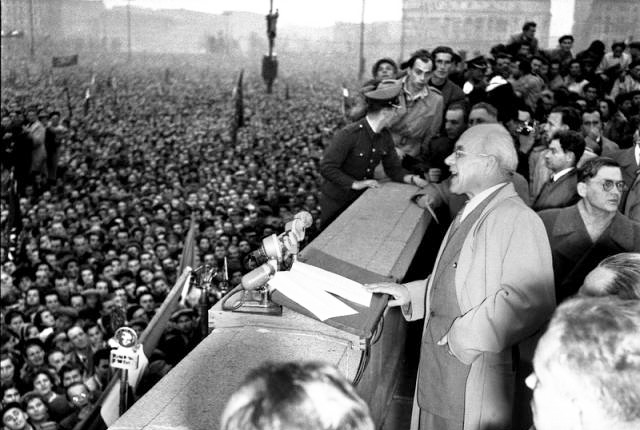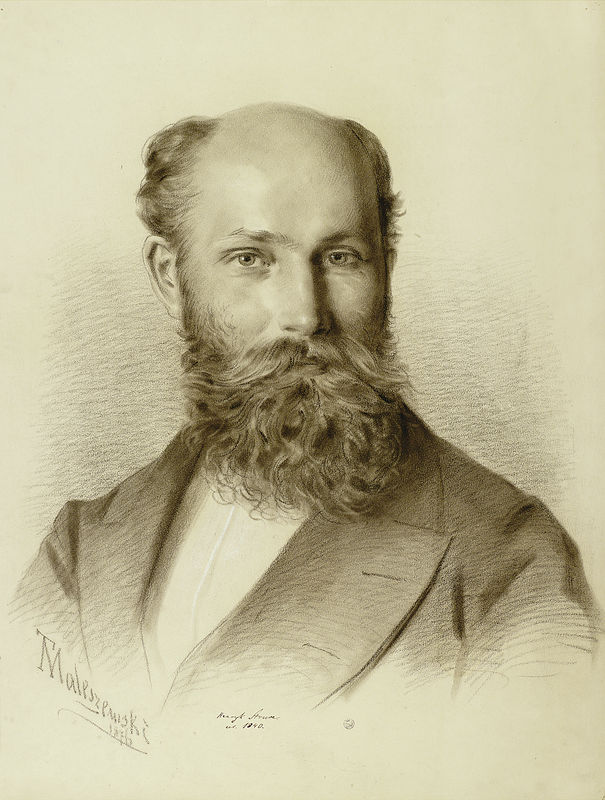|
Institute Of Philosophy, University Of Warsaw
Institute of Philosophy of the University of Warsaw (Polish ''Instytut filozofii Uniwersytetu Warszawskiego'') is a research institution located in Warsaw, part of the Faculty of Philosophy and Sociology of the University of Warsaw. It is renowned mainly for its contribution to the development of modern logic and analytic philosophy ( Lvov-Warsaw School - Alfred Tarski, Jan Łukasiewicz, Kazimierz Ajdukiewicz, Tadeusz Kotarbiński, Stanisław Leśniewski) and to history of ideas ( Warsaw School of the History of Ideas - Władysław Tatarkiewicz, Stanisław Ossowski, Maria Ossowska, Leszek Kołakowski, Adam Schaff). Provides master's degree studies, doctor's degree studies and postgraduate studies in philosophy both in Polish and in English. The 18th and 19th century The main centre of the medieval and early modern Polish philosophy was Kraków - history of philosophy in Warsaw begins in the 18th century. In the pre-partition Varsovian institutions, the Collegium Nobilium a ... [...More Info...] [...Related Items...] OR: [Wikipedia] [Google] [Baidu] |
University Of Warsaw
The University of Warsaw ( pl, Uniwersytet Warszawski, la, Universitas Varsoviensis) is a public university in Warsaw, Poland. Established in 1816, it is the largest institution of higher learning in the country offering 37 different fields of study as well as 100 specializations in humanities, technical, and the natural sciences. The University of Warsaw consists of 126 buildings and educational complexes with over 18 faculties: biology, chemistry, journalism and political science, philosophy and sociology, physics, geography and regional studies, geology, history, applied linguistics and philology, Polish language, pedagogy, economics, law and public administration, psychology, applied social sciences, management and mathematics, computer science and mechanics. The University of Warsaw is one of the top Polish universities. It was ranked by '' Perspektywy'' magazine as best Polish university in 2010, 2011, 2014, and 2016. International rankings such as ARWU and Universi ... [...More Info...] [...Related Items...] OR: [Wikipedia] [Google] [Baidu] |
Kraków
Kraków (), or Cracow, is the second-largest and one of the oldest cities in Poland. Situated on the Vistula River in Lesser Poland Voivodeship, the city dates back to the seventh century. Kraków was the official capital of Poland until 1596 and has traditionally been one of the leading centres of Polish academic, economic, cultural and artistic life. Cited as one of Europe's most beautiful cities, its Old Town with Wawel Royal Castle was declared a UNESCO World Heritage Site in 1978, one of the first 12 sites granted the status. The city has grown from a Stone Age settlement to Poland's second-most-important city. It began as a hamlet on Wawel Hill and was reported by Ibrahim Ibn Yakoub, a merchant from Cordoba, as a busy trading centre of Central Europe in 985. With the establishment of new universities and cultural venues at the emergence of the Second Polish Republic in 1918 and throughout the 20th century, Kraków reaffirmed its role as a major national academic an ... [...More Info...] [...Related Items...] OR: [Wikipedia] [Google] [Baidu] |
Zdzisław Augustynek
Zdzisław may refer to: People * Zdzisław (given name), a Slavic male given name Places * Zdzisław, Lubusz Voivodeship Zdzisław (german: Unruhsau) is a village in the administrative district of Gmina Babimost __NOTOC__ Gmina Babimost is an urban-rural gmina (administrative district) in Zielona Góra County, Lubusz Voivodeship, in western Poland. Its seat is ..., a village in Poland * Zdzisław Krzyszkowiak Stadium, a multi-use stadium in Bydgoszcz, Poland {{disambig ... [...More Info...] [...Related Items...] OR: [Wikipedia] [Google] [Baidu] |
Zygmunt Bauman
Zygmunt Bauman (; 19 November 1925 – 9 January 2017) was a Polish sociologist and philosopher. He was driven out of the Polish People's Republic during the 1968 Polish political crisis and forced to give up his Polish citizenship. He emigrated to Israel; three years later he moved to the United Kingdom. He resided in England from 1971, where he studied at the London School of Economics and became Professor of Sociology at the University of Leeds, later Emeritus. Bauman was a social theorist, writing on issues as diverse as modernity and the Holocaust, postmodern consumerism and liquid modernity. Early life and education Bauman was born to non-observant Polish Jewish family in Poznań, Second Polish Republic, in 1925. In 1939, when Poland was invaded by Nazi Germany and the Soviet Union, his family escaped eastwards into the USSR. Career During World War II, Bauman enlisted in the Soviet-controlled First Polish Army, working as a political instructor. He took part in t ... [...More Info...] [...Related Items...] OR: [Wikipedia] [Google] [Baidu] |
1968 Polish Political Crisis
The Polish 1968 political crisis, also known in Poland as March 1968, Students' March, or March events ( pl, Marzec 1968; studencki Marzec; wydarzenia marcowe), was a series of major student, intellectual and other protests against the ruling Polish United Workers' Party of the Polish People's Republic. The crisis led to the suppression of student strikes by security forces in all major academic centres across the country and the subsequent repression of the Polish dissident movement. It was also accompanied by mass emigration following an antisemitic (branded "anti-Zionist") campaign waged by the minister of internal affairs, General Mieczysław Moczar, with the approval of First Secretary Władysław Gomułka of the Polish United Workers' Party (PZPR). The protests overlapped with the events of the Prague Spring in neighboring Czechoslovakia – raising new hopes of democratic reforms among the intelligentsia. The Czechoslovak unrest culminated in the Warsaw Pact invasion of Cz ... [...More Info...] [...Related Items...] OR: [Wikipedia] [Google] [Baidu] |
Polish October
Polish October (), also known as October 1956, Polish thaw, or Gomułka's thaw, marked a change in the politics of Poland in the second half of 1956. Some social scientists term it the Polish October Revolution, which was less dramatic than the Hungarian Revolution of 1956 but may have had an even deeper impact on the Eastern Bloc and on the Soviet Union's relationship to its satellite states in Central and Eastern Europe. Iván T. Berend, ''Central and Eastern Europe, 1944–1993: Detour from the Periphery to the Periphery'', Cambridge University Press, 1999, Google Print, p.115-116/ref> For the Polish People's Republic, 1956 was a year of transition. The international situation significantly weakened the hardline Stalinist faction in Poland, especially after the Polish communist leader Bolesław Bierut died in March. Three years had passed since Joseph Stalin's death and his successor at the Soviet Union's helm, First Secretary Nikita Khrushchev, denounced him in February. ... [...More Info...] [...Related Items...] OR: [Wikipedia] [Google] [Baidu] |
Henryk Elzenberg
Henryk may refer to: * Henryk (given name) * Henryk, Świętokrzyskie Voivodeship, a village in south-central Poland * Henryk Glacier, an Antarctic glacier See also * Henryk Batuta hoax, an internet hoax * Henrykian articles, a Polish constitutional law establishing elective monarchy * {{disambiguation, geo ... [...More Info...] [...Related Items...] OR: [Wikipedia] [Google] [Baidu] |
Stanislaw Schayer
Stanislaw Schayer (born May 8, 1899 in Sędziszów, Poland, died December 1, 1941 in Otwock, Poland) was a linguist, Indologist, philosopher, professor at the University of Warsaw. In 1922, he founded, and was the first director, of the Institute of Oriental Studies at the University of Warsaw.''Smolna 30. Gimnazjum im. Jana Zamoyskiego'' Warszawa: PIW, 1989, wspomnienie na s. 148 i 156. He was a member of the Polish Academy of Arts and Sciences and the Warsaw Scientific Society. References Bibliography * * Indologists by nationality 20th-century Polish philosophers University of Warsaw faculty 1899 births 1941 deaths Polish translators People from Świętokrzyskie Voivodeship 20th-century translators {{poland-bio-stub ... [...More Info...] [...Related Items...] OR: [Wikipedia] [Google] [Baidu] |
Henryk Struve
Henryk Struve (also known as Florian Gąsiorowski) (1840–1912) was a Polish philosopher. He has been called "perhaps the most remarkable person in logic in Warsaw in the 19th century". Struve taught philosophy at Warsaw University from 1862 to 1903. He wrote works in Polish, German and Russian. References * Roman Murawski (2016) "On the Way to Modern Logic: the case of Polish Logic", pages 183 to 95 in ''Modern Logic 1850 – 1950, East-West'', Birkhäuser External links * 1840 births 1912 deaths Polish logicians 19th-century Polish philosophers Academic staff of the University of Warsaw {{Poland-philosopher-stub ... [...More Info...] [...Related Items...] OR: [Wikipedia] [Google] [Baidu] |
Adam Zabellewicz
Adam Ignacy Zabellewicz (1784–1831) was a professor of philosophy at Warsaw University. Life Zabellewicz was professor of philosophy at Warsaw University from 1818 to 1823. Zabellewicz was one of nearly all the university professors of philosophy in Poland before the November 1830–31 Uprising who held a position that shunned both Positivism Positivism is an empiricist philosophical theory that holds that all genuine knowledge is either true by definition or positive—meaning ''a posteriori'' facts derived by reason and logic from sensory experience.John J. Macionis, Linda M. G ... and metaphysical speculation, affined to the Scottish philosophers but linked in certain respects to Kantian critique. Władysław Tatarkiewicz, ''Zarys...'', p. 16–17. See also * History of philosophy in Poland * List of Poles Notes References * Władysław Tatarkiewicz, ''Zarys dziejów filozofii w Polsce'' (A Brief History of Philosophy in Poland), n the series:Historia nauki p ... [...More Info...] [...Related Items...] OR: [Wikipedia] [Google] [Baidu] |
Russification
Russification (russian: русификация, rusifikatsiya), or Russianization, is a form of cultural assimilation in which non-Russians, whether involuntarily or voluntarily, give up their culture and language in favor of the Russian culture and the Russian language. In a historical sense, the term refers to both official and unofficial policies of the Russian Empire and the Soviet Union with respect to their national constituents and to national minorities in Russia, aimed at Russian domination and hegemony. The major areas of Russification are politics and culture. In politics, an element of Russification is assigning Russian nationals to leading administrative positions in national institutions. In culture, Russification primarily amounts to the domination of the Russian language in official business and the strong influence of the Russian language on national idioms. The shifts in demographics in favour of the ethnic Russian population are sometimes considered as a form ... [...More Info...] [...Related Items...] OR: [Wikipedia] [Google] [Baidu] |
Marcin Nikuta
Marcin (Polish pronunciation: ) is a male given name or surname. Notable people with the name Marcin include: Given name * Marcin Dorociński (born 1973), Polish actor * Marcin Gortat (born 1984), Polish basketball player * Marcin Held (born 1992), Polish mixed martial artist * Marcin Jakubowski founded Open Source Ecology (OSE) in 2003 * Marcin Kaczmarek (other), several people ** Marcin Kaczmarek (footballer) (born 1979), Polish footballer ** Marcin Kaczmarek (swimmer) (born 1977), Polish butterfly swimmer * Marcin Kalinowski (1605–1652), Polish nobleman * Marcin Kleczynski Marcin Kleczynski (born November 1, 1989) is the chief executive officer (CEO) and co-founder of American Internet security company, Malwarebytes. After a period working as a computer repairer and being involved in forums in the mid 2000s, Kleczyns ... (born 1989), co-founder and CEO of Malwarebytes Inc. * Marcin Kromer (1512–1583), Polish historian and chronicler, royal secretary, bishop ... [...More Info...] [...Related Items...] OR: [Wikipedia] [Google] [Baidu] |




